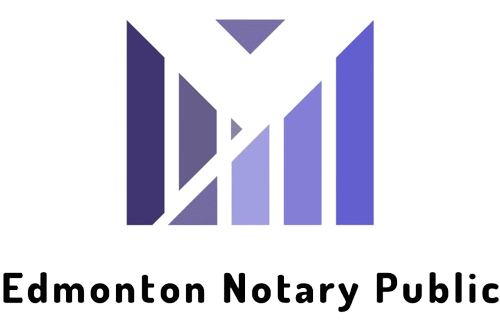Estate Planning Attorney: Peace of Mind for the Future
Planning is not just a responsible choice-it’s a gift to those you love. In an unpredictable world, preparing for the future helps ensure that your family is protected, your assets are secured, and your wishes are honoured. An estate planning attorney plays a critical role in making this happen. Whether you're building your career, raising children, managing a business, or planning retirement, working with a professional can simplify complex legal decisions and offer long-term clarity.
This guide will walk you through everything you need to know about hiring an estate planning attorney, including what they do, how the process works, and how to select the right one for your needs.
What an Estate Planning Attorney Does
An estate planning attorney, sometimes called an estate lawyer or probate lawyer, specialises in preparing the legal documents and strategies that ensure your estate is managed according to your wishes. Their primary function is to help you outline what happens to your property and
assets when you can no longer make those decisions due to incapacity or death.
These
legal professionals handle the drafting of wills, setting up trusts, and establishing powers of attorney, creating health care directives, and offering legal advice on how to minimise estate taxes or avoid probate. They are experts in the local laws governing estate planning and provide personalised guidance to ensure every document aligns with your goals and protects your interests.
Why Hiring One Is So Important
Many people believe estate planning is only for the wealthy or elderly. The truth is that anyone with dependants, personal wishes, or valuable assets can benefit from a proper estate plan. Without a legal plan in place, government statutes may decide how your estate is handled-and those decisions may not reflect what you truly want.
An
estate planning attorney helps you maintain control over your decisions. You get to decide who inherits your property, who makes medical decisions for you if you're incapacitated, and who will take care of your children if something happens to you. More than that, the legal clarity an estate plan provides can prevent family disputes, delays, or costly court proceedings down the line.
Starting the Estate Planning Process
Working with an estate planning attorney is more straightforward than many people expect. It usually begins with an initial consultation where the attorney learns about your family situation,
financial portfolio, and any unique concerns or wishes. This meeting is a conversation, not a
test-and your attorney will guide you through each step.
Once your goals are clear, the attorney begins preparing the legal documents tailored to your situation. These might include a will that distributes your estate, a power of attorney that designates someone to act on your behalf if needed, and possibly a trust to protect assets or
avoid probate.
The documents are carefully reviewed with you before signing. Your attorney will explain how each one works and ensure it reflects your wishes. After signing, the documents are usually stored safely, and you’ll be advised to revisit them periodically-especially if you experience major life changes like marriage, a new child, or a shift in finances.
Understanding Key Documents
One of the most common estate planning tools is the last will and testament. This document specifies how your estate should be distributed upon your death. It also names an executor who will carry out your instructions and can identify guardians for any minor children.
A trust is another legal tool often used in estate planning. It allows a third party, known as a trustee, to manage assets on behalf of beneficiaries. Trusts can go into effect during your lifetime or after your death and are particularly useful for avoiding probate and protecting your estate from certain taxes or legal challenges.
In addition to wills and trusts, an estate plan often includes documents that come into play while you’re still alive. A power of attorney allows someone to handle your financial or legal matters if you become incapacitated. A health care directive outlines your preferences regarding medical treatment and appoints someone to make health-related decisions on your behalf.
Each document serves a specific purpose and adds another layer of protection and clarity to your plan.
The Risks of DIY or Poorly Planned Estates
It can be tempting to download a template or use online tools for estate planning, but this often leads to oversights. Mistakes like missing signatures, vague wording, or outdated information can lead to serious complications. Even minor errors can render documents invalid, forcing your family into legal limbo during a time of grief.
An estate planning attorney understands how to avoid these issues. They ask the right questions, account for local laws, and help you consider details you might not think of on your own-like how to handle digital assets, what to do with business interests, or how to ensure children from a previous relationship are fairly represented in your estate.
Estate Planning and Family Harmony
One of the biggest benefits of working with an estate planning attorney is the peace it brings
to families. When there’s a clear, legally binding plan in place, relatives are less likely to argue over inheritance, make emotionally charged decisions, or face confusion in an already difficult time.
Beyond distributing assets, your attorney will help you make thoughtful decisions about guardianship, health care, and financial oversight. This makes your wishes clear and reduces the emotional burden on your loved ones.
Choosing the Right Attorney
The right estate planning attorney is more than just a legal professional-they are someone you trust with your most personal matters. Look for a lawyer who has dedicated experience in estate law, communicates clearly, and listens carefully to your needs. Transparency about fees is important too. Many professionals offer fixed pricing for estate packages, which helps avoid surprise costs.
Word of mouth, online reviews, and professional credentials are great ways to evaluate potential attorneys. If you feel comfortable and confident during your first meeting, that’s a strong sign you’ve found a good fit.
Special Considerations for Business Owners
If you own a business, estate planning becomes even more essential. Your plan should include how your business will continue in the event of your incapacity or death. This might involve naming a successor, preparing a buy-sell agreement, or setting up a trust that protects the company’s assets. A qualified estate planning attorney can help integrate your business strategy into your personal estate plan so that there are no disruptions for employees, partners, or clients.
Avoiding Common Mistakes
Over time, life changes. Marriages happen. Children are born. Real estate is bought or sold. One of the most common mistakes in estate planning is failing to update your documents after major life events. Another frequent oversight is forgetting to coordinate your estate plan with the beneficiary designations on accounts like pensions or life insurance.
An experienced estate planning attorney will encourage regular reviews and guide you through updates to make sure everything stays current and aligned with your wishes.
Control, Protection, and Peace of Mind
Estate planning is not about wealth-it’s about responsibility. It’s about ensuring your loved ones are taken care of, your voice is heard, and your values are reflected in the choices made on
your behalf. A good estate planning attorney does more than draft documents-they act as a
trusted guide through complex life decisions.
By creating a plan today, you are protecting your future and giving your family one of the greatest gifts: peace of mind.
If you’re ready to take that step, consider reaching out to a trusted local professional like those at
Edmonton Notary. With the right guidance, estate planning becomes a thoughtful and empowering experience that protects what matters most.




